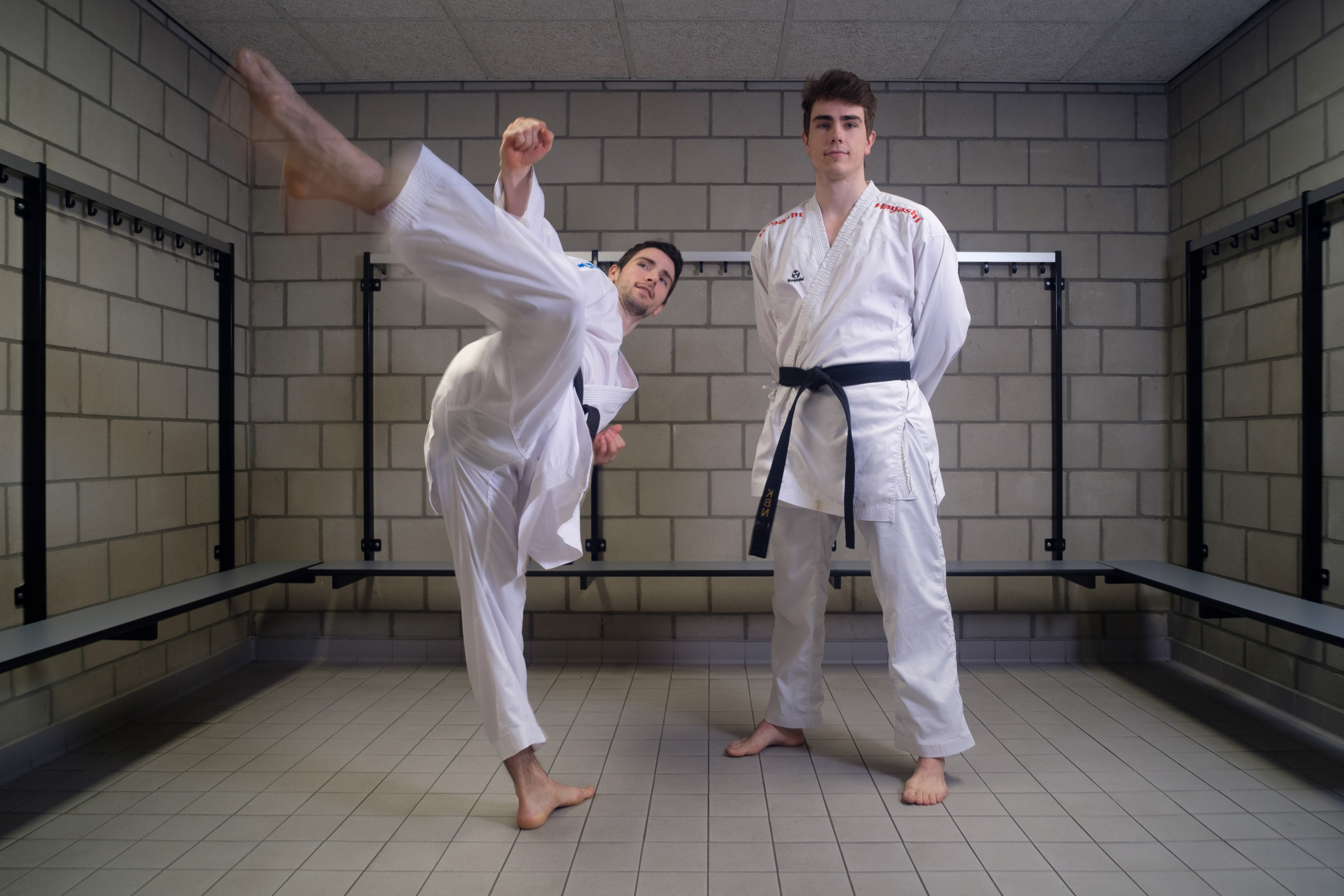Transparency leading to honest drug prices
Medical students Charlotte Menart, Victoria Defelippe and Anja Wiemers are organising the Access to Medicines Week. This year, the theme is ‘How transparent is your university?’. Many people around the world do not have access to medicines that are essential for their health. They are too expensive or are simply not considered profitable enough to be developed. Universities can make a difference here, particularly through socially responsible research. First and foremost, that requires transparency—at all levels. “Ultimately, we are talking about systemic change.”

This story is part of our series Students going the extra mile.

Charlotte from Slovenia, Victoria from Paraguay and Anja from Germany and Croatia specifically chose to study Medicine in Maastricht. The programme is unique because of its English-language and case-based education, which gives attention to cultural differences. However, they missed a certain ethical aspect in the programme. Charlotte: “I began to question the idealistic story about helping patients. Many people in the world don’t have access to essential medicines, such as insulin or antibiotics. You also see that with medication for infectious tropical diseases. These types of medicines are too expensive or are simply not developed.”
Socially responsible research
To help change this, the three are members of Universities Allied for Essential Medicines. UAEM is a worldwide student organisation that aims to promote the availability and affordability of medicines. “Our mission is first and foremost to ensure that universities take more ownership of their research”, explains Victoria, president of UAEM Maastricht. “A third of the medicines that come on the market have been discovered at a university. During the patent acquisition process, the university can impose requirements on the patent holder to set a fair price in the long term.”

Increased awareness
The mission of UAEM is also focused on awareness. “Many students and researchers don’t even know that the problem of inaccessible medicines exists”, says Charlotte, PR coordinator at UAEM Maastricht. “We want to inform students and other stakeholders about this and bring awareness to the problem.” One of UAEM's important campaigns for this purpose is the annual Access to Medicines Week, which takes place this year in the week of 5 November. The theme is ‘How transparent is your university?’. The programme includes a lecture by Wilbert Bannenberg, president of the Dutch Pharmaceutical Accountability Foundation, and a workshop on ‘The Journey of a Drug’. Participants will experience the development of a medication from the chemical formula to the final product.
Transparency required
Transparency is a prerequisite for achieving reasonable drug prices. “If nothing is known about drug development, what should someone feel responsible for?” says Anja, head of internal and external communications. Transparency can take place at different levels: in financing, in the patent application process or in the research and development of medicines. The latter means that a researcher publishes all results, including negative outcomes. Victoria: “Research takes a long time and is expensive. And even more so when this information is withheld.”

Open access, a difficult issue
UAEM advocates for open access research, which involves collaborating on research and sharing research data and methods in a central database. Anja: “We believe in freely available research because this type of database leads to faster results, especially when it comes to need-based research. Take, for example, HIV research in the 1990s, where researchers came together during the crisis in South Africa. They saw the benefits of cooperation, and shared knowledge led to an effective regression of the disease.” But the three admit that open access is tricky business. The competitive model of research still prevails.
Systemic change
Essentially, UAEM aims to bring about systemic change, the three explain. That should already begin with alternative financing. Victoria: “By far the majority of research is driven by profit and not by social necessity.” UAEM advocates for financing that is more based on the needs of the people. “What are the urgent cases in global health? How can we finance research in such a way that the pharmaceutical industry also considers itself responsible for these diseases?”
Pharmaceutical industry as the bogeyman?
No, that is not the strategy of UAEM. Charlotte: “Pharmaceutical companies operate on the free market and go for profit. This is to some extent understandable; otherwise, a company will likely go bankrupt. However, we emphasise that health is a human right, and this should not be forgotten when setting up a business model.” Victoria: “Some pharmaceutical companies are doing well and are socially responsible; others are not. We don’t want to undermine them. Our goal is to be critical and to advocate with universities, government and pharma for transparency and fair prices.”

Educating a generation
Let others tackle the pharmaceutical industry; UAEM wants change based on philanthropy. Victoria: “We want the younger generation of doctors, lawyers and other stakeholders to become aware of the problem and to be socially responsible. This doesn’t differ much from what you now see happening in supermarkets with fair trade products. These have also arisen from a need for things that are fair, responsible and traceable. Our mission is basically the same, but with essential medicines. And this starts with universities.”
To view the programme, visit the Facebook page of UAEM Maastricht
Also read
-
Maastricht University received grants for three of the ten research projects starting in the National Growth Fund program Circular Plastics NL.
-
UM alumni Brian and Rob Timmermans combined their degrees in Econometrics and Sustainable Finance with their passion for karate, resulting in an ever-expanding trophy collection. Both brothers are multi-time and reigning Dutch champions in their respective weight classes and have achieved success on...
-
Maastricht University takes care of many distinctive buildings and art works that we all know. By giving them a new purpose, we preserve these icons and give them a new meaning, making them the vibrant heart of a bustling city.
Did you know that these buildings and art works also provide access to...


